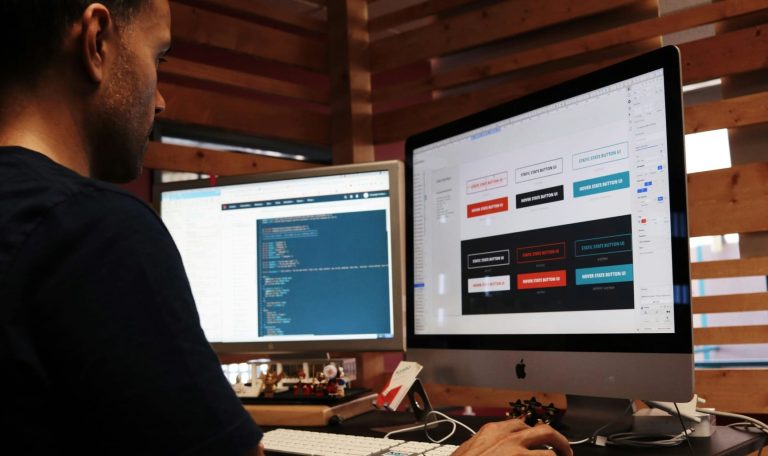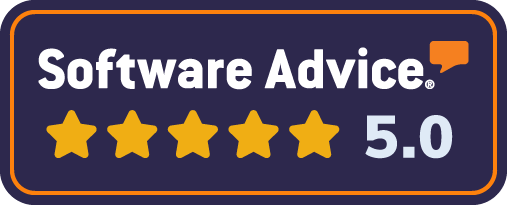At Emplibot, we’re closely monitoring a seismic shift in the digital landscape. Cloudflare, a titan in web infrastructure, has made a bold move to block AI crawlers from accessing new websites on its network.
This decision has far-reaching implications for SEO, content discovery, and the future of web scraping. Let’s explore what Cloudflare’s block on AI crawlers means for you and your online presence.
Contents
ToggleHow Cloudflare’s Impact Reshapes the Digital Landscape
Cloudflare’s Massive Reach
Cloudflare dominates the web infrastructure landscape, and its decision to block AI crawlers from new websites on its network reverberates throughout the digital world. To grasp the scale of this move, let’s examine some concrete figures.
Global Internet traffic grew 17.2% in 2024, marking a significant milestone in the evolution of the World Wide Web. This growth underscores the increasing importance of services like Cloudflare in managing and securing internet traffic.
Cloudflare’s network extends across more than 300 cities in over 100 countries, offering unmatched global coverage.
W3Techs reports that 79.9% of all websites using a CDN depend on Cloudflare. This market dominance positions Cloudflare well ahead of competitors like Amazon CloudFront and Akamai. Major platforms (including Reddit, Shopify, and Discord) all rely on Cloudflare’s infrastructure.
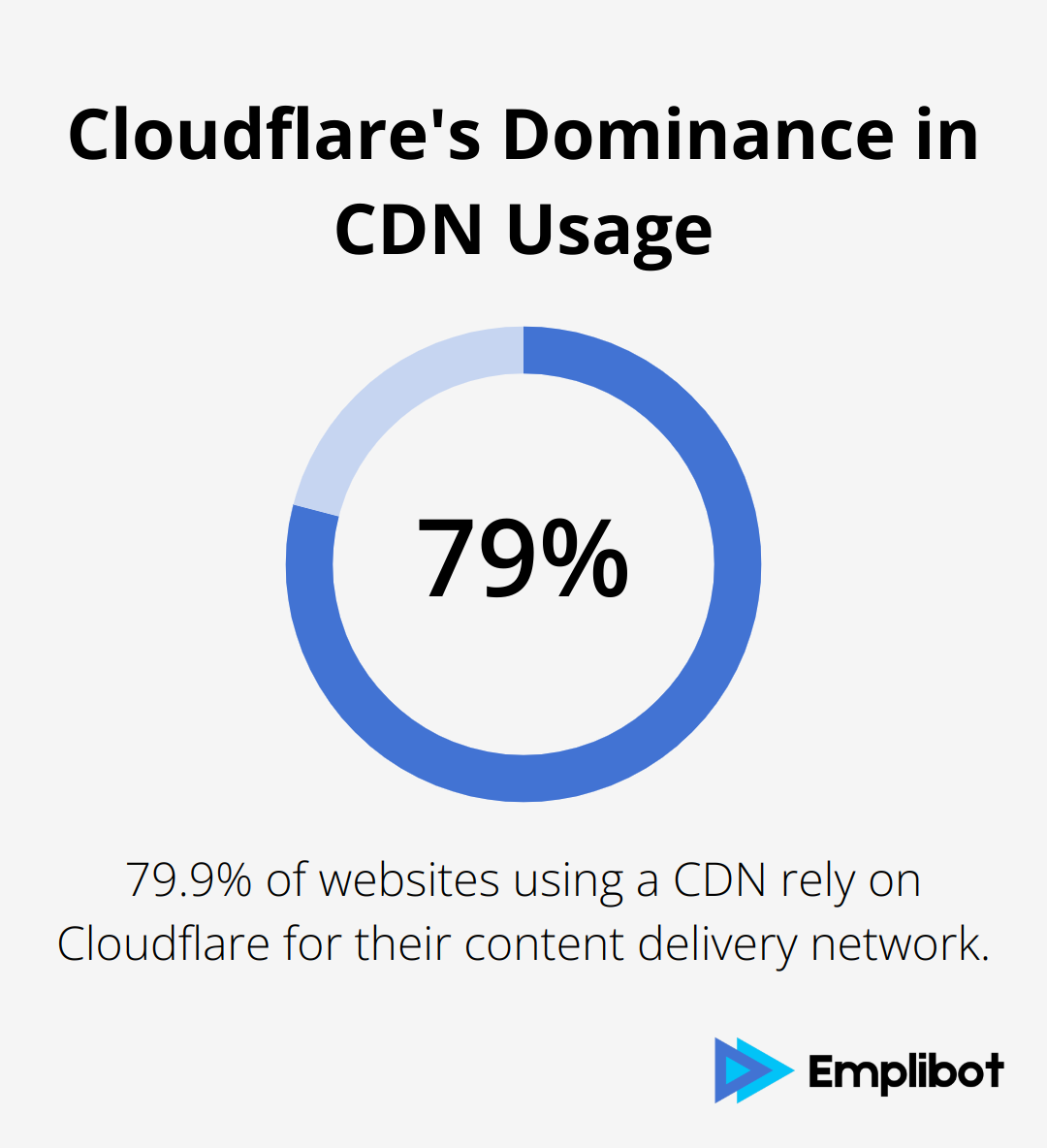
Cloudflare’s Role in Web Infrastructure
Cloudflare functions as a protective barrier between your website and the broader internet. It provides essential services such as DDoS protection, content delivery, and DNS management. In 2020, Cloudflare observed a 300% increase in DDoS attacks from Q1 to Q3, underscoring its vital role in maintaining website security and operability.
The Ripple Effect of Blocking AI Crawlers
Cloudflare’s choice to block AI crawlers by default on new websites marks a significant shift. This decision affects how AI models (like those from OpenAI and Google) access and learn from web content. For website owners, this change offers more control over data but also raises questions about visibility in AI-powered search results.
Implications for Content Strategy
This shift in AI crawler access could influence content discovery and SEO strategies. Website owners should stay informed about these developments and consider how they might affect their online presence. The landscape of content creation and distribution continues to evolve, and adaptability becomes key.
Looking Ahead: The Future of Web Crawling
As we move forward, the relationship between AI crawlers and web content will likely continue to change. The next section will explore how AI crawlers work and why Cloudflare decided to implement this block, shedding light on the potential risks and concerns associated with unrestricted AI crawling.
Why AI Crawlers Are Being Blocked
The Rise of AI Crawlers
AI crawlers are software programs that systematically browse the internet to collect vast amounts of data. These programs (like OpenAI’s GPTBot and Google’s AI-powered bots) train large language models and other AI systems. Their prevalence has increased significantly in recent years, which has sparked concerns among website owners and content creators.
The Double-Edged Sword of AI Crawlers
AI crawlers process and analyze web content at an unprecedented scale. This capability can lead to more advanced AI models and improved search capabilities. However, it comes at a cost. A Stanford University study revealed that AI systems made major strides in generating high-quality video, and in some settings, language model agents even outperformed traditional methods. This rapid advancement threatens the traditional web business model, where content creators rely on search engine traffic for revenue.
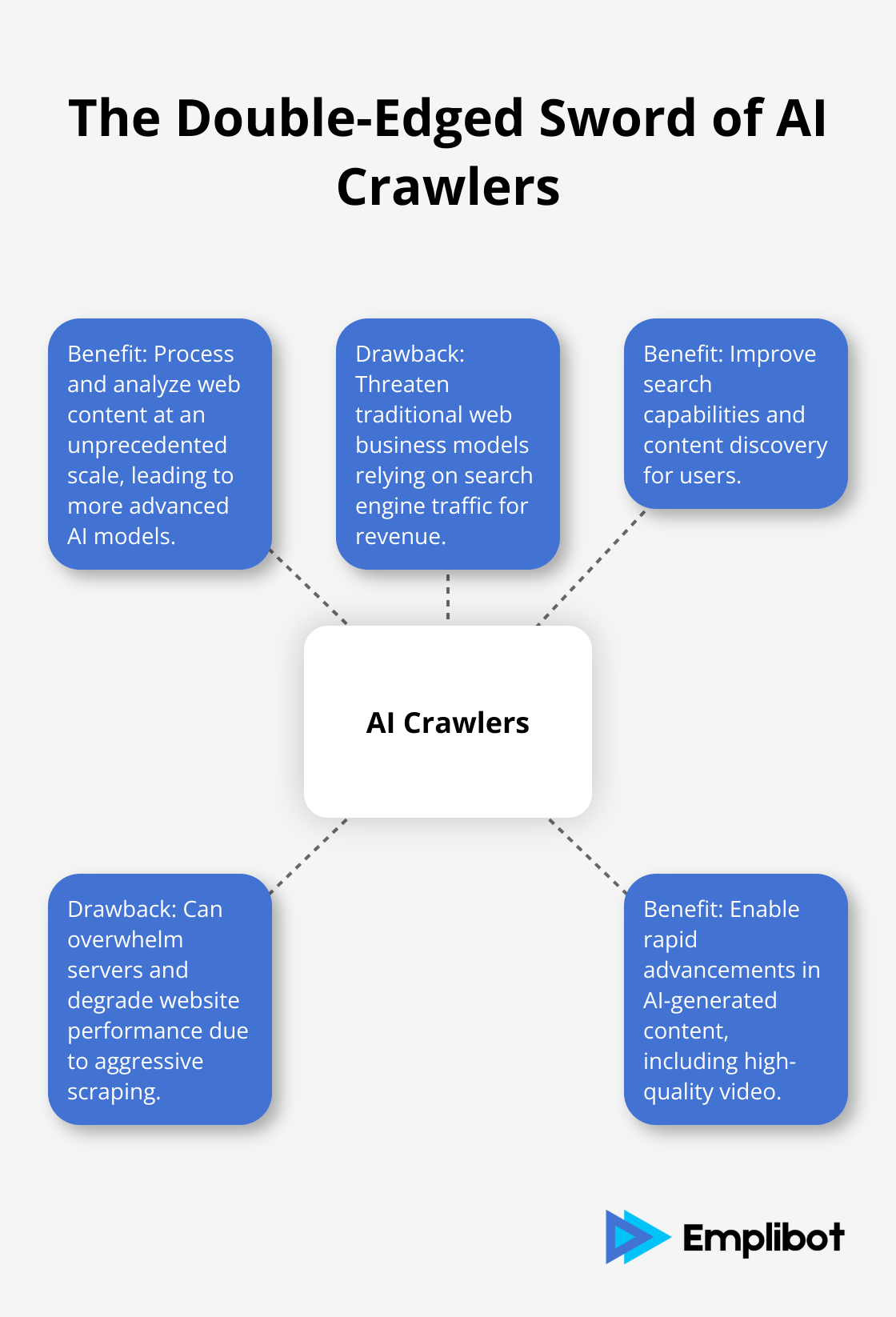
Protecting Content and User Experience
Cloudflare’s decision to block AI crawlers by default addresses several key concerns:
- Content ownership and fair compensation: Many publishers and content creators feel that AI companies profit from their work without proper attribution or payment. Cloudflare’s “Pay Per Crawl” model allows content creators to charge AI bots for accessing their content.
- Website performance: The aggressive scraping behavior of some AI bots can overwhelm servers and degrade user experience. ByteDance’s Bytespider, for example, accessed 40.4% of Cloudflare-protected domains. Cloudflare’s block aims to protect its clients from these performance issues.
Empowering Website Owners
Cloudflare’s new policy gives website owners unprecedented control over how AI systems access and use their content. Site administrators can now choose to allow, charge, or block AI crawlers through Cloudflare’s dashboard. This granular control allows businesses to make informed decisions about their content strategy in the age of AI.
Implications for SEO and Content Strategy
For SEO professionals and content creators, this shift necessitates a reevaluation of strategies. Blocking AI crawlers might protect content in the short term, but it could potentially impact visibility in AI-powered search results in the future. Businesses need to weigh the benefits of protecting their content against the potential loss of exposure in evolving search ecosystems.
As the landscape of content creation and distribution continues to evolve, adaptability becomes key. The next section will explore the specific implications of Cloudflare’s decision on SEO and content strategy, providing practical tips for businesses to navigate this new terrain.
How Cloudflare’s Block Affects Your SEO
The New Landscape of Content Indexing
Cloudflare’s decision to block AI crawlers by default on new websites transforms the SEO and content strategy landscape. This shift necessitates a reevaluation of content creation, distribution, and optimization approaches.
The block on AI crawlers alters content discovery and indexing methods. Traditional search engines (like Google) maintain their importance, with organic search traffic accounting for a significant portion of traffic for many publishers. However, the emergence of AI-powered search and content generation tools means content not included in AI training might suffer in search results.
This new reality demands a dual approach to SEO:
- Maintain strong traditional SEO practices for visibility in conventional search engines.
- Develop strategies to make content accessible and valuable to AI systems without compromising uniqueness or website performance.
Adapting Your Content Strategy
To thrive in this evolving landscape, consider these strategies:
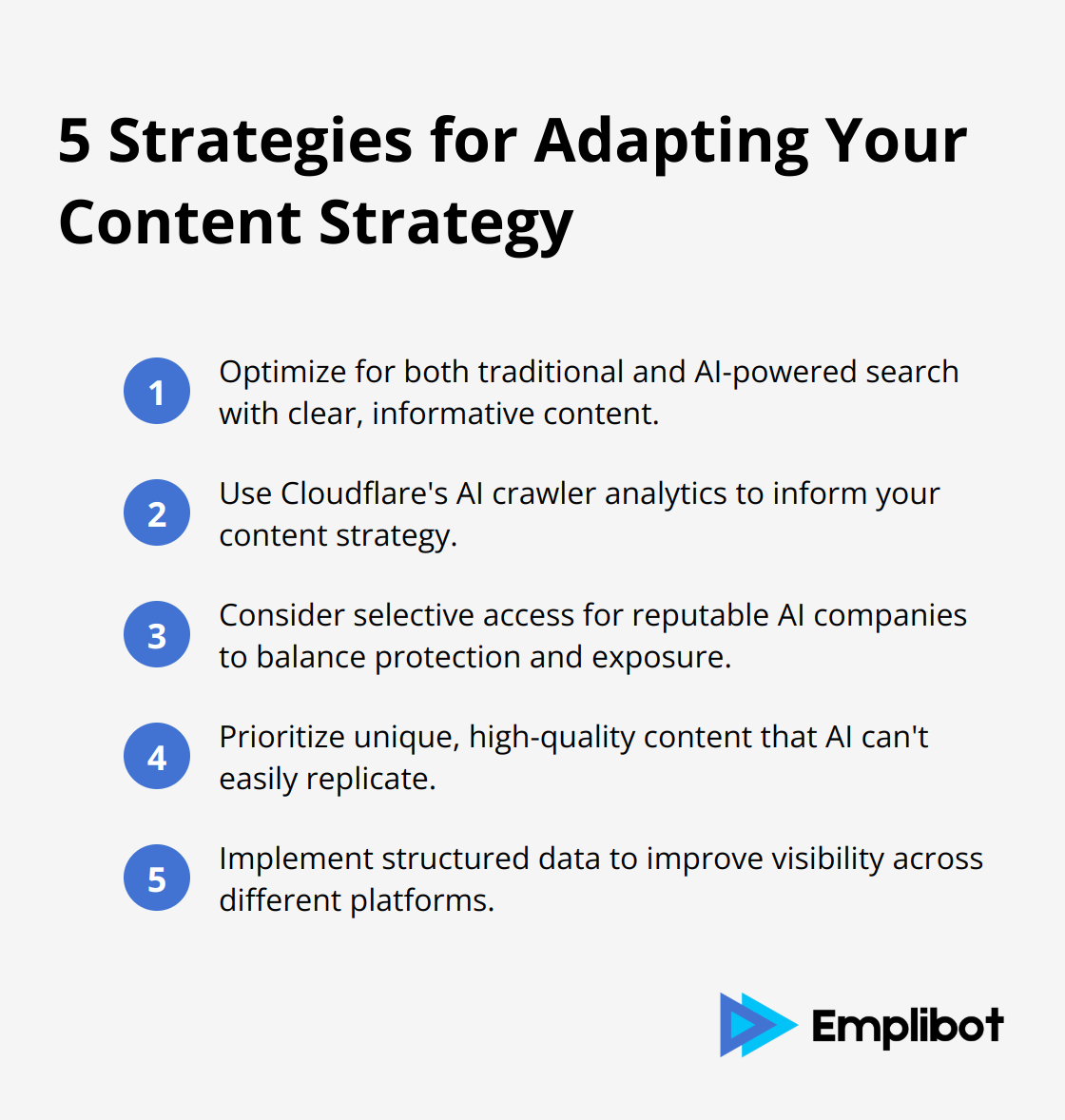
The Future of SEO in an AI-Dominated Web
As AI continues to shape the digital landscape, SEO professionals must remain agile. The traditional metrics of backlinks and keywords (while still important) now form part of a more complex ecosystem that includes AI understanding and content relevance.
The goal is to strike a balance between protecting your content and ensuring its discoverability. Staying informed about these changes and adapting your strategies accordingly can help maintain and even improve your online visibility in this new era of web content.
Leveraging AI-Aware SEO Tools
To navigate this new SEO landscape effectively, consider using AI-aware SEO tools. These tools can help you understand how AI crawlers interact with your content and provide insights on optimizing for both traditional and AI-powered search engines.
Emplibot stands out as a top choice among these tools. It automates your WordPress blog and social media, handling everything from keyword research to content creation and SEO optimization. (This comprehensive approach ensures your content remains visible and valuable in the evolving digital ecosystem.)
Final Thoughts
Cloudflare blocks AI crawlers by default on new websites, marking a pivotal moment in web content and SEO evolution. This decision reflects growing concerns about content ownership, fair compensation, and the impact of aggressive AI scraping on website performance. As the digital landscape shifts, website owners and content creators must adapt their strategies to navigate this new terrain.
The future of AI crawlers and web scraping remains uncertain. We may see the development of more sophisticated AI models that can learn from limited data, or new agreements between content creators and AI companies. Alternatively, this could lead to a more fragmented internet, with some content becoming inaccessible to AI systems.
For businesses and website owners, it’s crucial to stay informed and proactive. Consider whether to allow or block AI crawlers on your site, weighing the potential benefits against the risks. Emplibot offers a comprehensive solution to manage your content strategy, automating your WordPress blog and social media (from keyword research to content creation and SEO optimization). This type of tool can help you navigate the changing digital ecosystem while saving time and resources.

